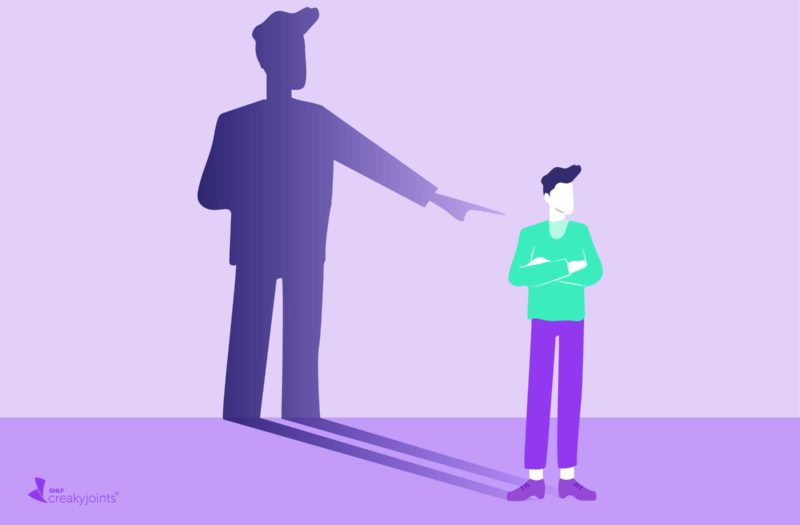Learn more about our FREE COVID-19 Patient Support Program for chronic illness patients and their loved ones.
Several times this week different patients of mine have expressed biting judgments of themselves.
“I’m just not good at anything these days. I’m thoughtless and I can’t remember anything,” said one.
“I’ve let down my team at work by being so tired. I’m not accomplishing what I should be,” said another.
I heard variations of these inner critiques from a few more people and decided to call a halt.
The practice of criticizing ourselves as a way to “motivate” or push performance is a time-tested practice for many us. When we live with chronic pain and unpredictable debilitating symptoms, it becomes a way of life. We are consistently measuring what we think we should be doing or accomplishing against what we are actually able to do — and find ourselves falling short.
The cycle of critique sets in.
And in a pandemic, when many of us are already exhausted by a roller coaster of bad news and not-normal patterns of living, this cycle is accelerated.
This study from the Journal of Clinical Psychology reminded me that there is an alternative: practice self-compassion.
“But won’t I just be having a pity party for myself?” one client wondered.
No. Self-compassion is not a practice of wallowing in our distress. It is a practice of acknowledging, of witnessing that indeed we are suffering in this moment. It means having compassion toward whatever our difficulty is — pain, loss, a sense of not being or doing enough, too much work, not enough work, sickness that has no end, or whatever we are experiencing.
Instead of saying to ourselves things like Just get over it! or You’re making too much of this!, with self-compassion, we turn a soft gaze and say, Yes of course. This is lousy. It is hard. It hurts. We give a gentle pat on the shoulder to ourselves, or a hug. We witness that whatever we are going through is a suffering.
Then we acknowledge that this particular suffering that is ours is connected to so much suffering in the world. There is no hierarchy. It is not that I should get over mine because so many others have it worse. It is a wise nod that all human beings suffer. We let our hearts be soft and hold that.
In this way, our compassion for ourselves also allows more compassion for others in a shared humanity.
Self-compassion is the antidote to burnout and being overwhelmed. We do not need to criticize ourselves for what we are not doing. We can hold our lives in a compassionate gaze and recognize what we are up against and how well we are managing all of it.
Get Free Coronavirus Support for Chronic Illness Patients
Join the Global Healthy Living Foundation’s free COVID-19 Support Program for chronic illness patients and their families. We will be providing updated information, community support, and other resources tailored specifically to your health and safety. Join now.
Carvalho SA, et al. Mindfulness, self-compassion, and depressive symptoms in chronic pain: The role of pain acceptance. Journal of Clinical Psychology. December 2018. doi: https://doi.org/10.1002/jclp.22689.






